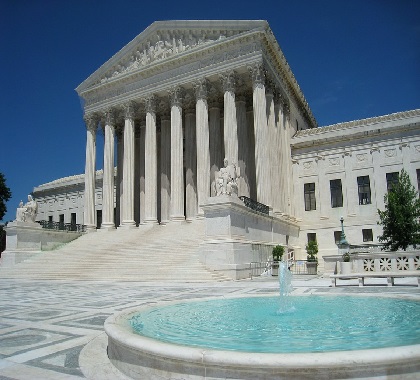Lawyers representing an Illinois state government employee challenging the constitutionality of forcibly deducting union fees from his paycheck will get to present their case to the U.S. Supreme Court (SCOTUS).
On September 28, SCOTUS granted a petition to hear the case during its current term, which concludes on April 25, 2018. No date has been set for the beginning of oral arguments in the case.
Illinois Department of Healthcare and Family Services child support specialist Mark Janus is suing to establish the right of individual government employees to decide whether they want to contribute to and be a member of a public-sector labor union.
Currently, many government employees are required to contribute funds to the labor union, as condition of employment.
Janus is seeking the reversal of a 40-year-old SCOTUS ruling, Abood v. Detroit Board of Education, denying government employees the right to opt out of union membership if employed in a government office in which workers are unionized.
‘The Right to Decide’
Jacob Huebert, a Liberty Justice Center senior attorney representing Janus, says the case is about protecting individuals’ freedom to choose what’s right for them.
“If we prevail in this case, then every government worker across the country will have the right to decide if they will give any of their money to a union,” Huebert said. “These people will have the right to decide what political advocacy groups they will or won’t support with their money. Unions will have to solicit the support of the people they represent by providing something of value, so it could be that unions will be more responsive to government workers.”
Individuals should be free to choose to negotiate their own contracts or pay labor unions to negotiate on their behalf, Huebert says.
“Not every worker considers what the union does to be of benefit,” Huebert said. “Some workers might think they can do better for themselves. If they’re above average, they may want to be paid based on their individual performance rather than being lumped with everyone else.”
Inherent Political Ties
Patrick Semmens, vice president of public information for the National Right to Work Legal Defense Foundation, says public-sector labor unions are inherently political, because everything they do affects government policy.
“In the public sector, there is no real distinction,” Semmens said. “Everything the union does is essentially lobbying, because everything they’re trying to do is get the way the government acts to change. They want public policy to change, like negotiating for teacher seniority rules so that a teacher is going to keep their job based on seniority and not their merit. That’s important public policy.”
‘A First Amendment Issue’
The Janus case is about protecting government employees’ freedom of speech, Semmens says.
“When they’re talking to the government on Mark Janus’ behalf, we say, ‘Look, that’s a First Amendment issue,'” Semmens said. “No matter the subject of the conversation, he shouldn’t be forced to pay for it.”
If SCOTUS sides with Janus, all public employees will benefit, Semmens says.
“The winners are every single public employee, because it will give them a choice,” Semmens said. “It will mean they can pay if they want to, but no longer will be required to.”




